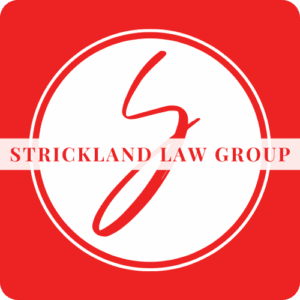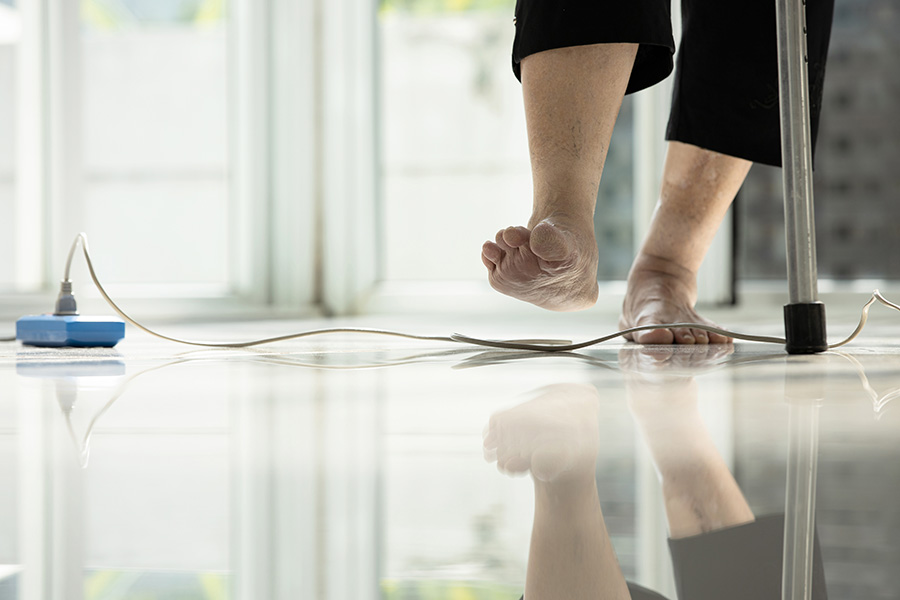Montgomery is changing fast. Uber and Lyft cars cruise from Maxwell Air Force Base to downtown entertainment districts. Weekend Airbnbs around Lake Jordan host bachelor parties and family reunions. New shopping centers rise while historic buildings decay. But with growth comes hidden dangers that send unsuspecting people to Baptist South and Jackson Hospital every single day. These aren’t random accidents – they’re predictable injuries caused by companies and property owners who put profits over safety in Alabama’s capital city.
Montgomery’s Rideshare Revolution Creates Daily Dangers
Five years ago, getting a ride in Montgomery meant calling a traditional taxi. Now, hundreds of Uber and Lyft drivers navigate our streets daily, creating new risks at every turn. The convergence of state government workers, military personnel from Maxwell, and college students from ASU and AUM means constant rideshare traffic in areas never designed for continuous pickup and drop-off activity.
Michael Strickland, founding attorney at Strickland Law Group with offices in Montgomery, sees the casualties of this transportation revolution. “Rideshare drivers face impossible pressures,” he explains. “They’re racing between pickups on unfamiliar streets, watching their apps instead of the road, stopping suddenly wherever passengers request. When crashes happen, victims discover they’re facing not one but three insurance companies, each pointing fingers at the others.”
Downtown Montgomery becomes especially dangerous during peak rideshare hours. The Alley Bar district sees drivers double-parking on narrow streets. Government workers calling rides create traffic chaos around the State Capitol and RSA Tower. The Entertainment District brings impaired drivers sharing roads with rideshares carrying impaired passengers. Each scenario multiplies crash risks.
The Insurance Shell Game After Montgomery Rideshare Crashes
When your Uber gets T-boned at the Court Square intersection or your Lyft rear-ends someone on Taylor Road, determining coverage becomes a complex puzzle. The coverage depends on precise timing and driver status. Before accepting your ride request, minimal coverage applies. During your trip through Montgomery, $1 million policies kick in. But insurance companies fight over exactly when coverage transitions occur.
Montgomery-specific challenges make rideshare claims harder. Our contributory negligence law means if you’re found even 1% at fault – maybe you weren’t wearing a seatbelt or you “distracted” the driver with conversation – you get nothing. Insurance adjusters know Montgomery juries and use local prejudices against rideshare passengers who’ve been drinking downtown or “should have known” that area was dangerous.
The Dark Side of Montgomery’s Airbnb Boom
Drive around Lake Martin on any weekend and count the Airbnb signs. Check downtown Montgomery listings for football weekends or legislative sessions. From historic Garden District homes to rural Pike Road properties, hundreds of short-term rentals operate with minimal oversight and maximum danger.
These aren’t professionally managed hotels with safety standards and regular inspections. They’re often investment properties where out-of-state owners never visit. Property management companies juggle dozens of rentals without proper maintenance. Nobody takes responsibility when guests get hurt.
Common Airbnb Hazards Specific to Montgomery Area
Lake Martin and Lake Jordan rentals present unique dangers. Aging docks collapse under party crowds. Steep paths to water lack lighting or railings. Owners skip expensive repairs, knowing guests stay only briefly. Recent injuries include drownings from unmarked drop-offs, falls on rotting deck boards, and carbon monoxide poisoning from faulty heaters.
Downtown Montgomery historic home rentals hide different dangers. Century-old stairs with inconsistent heights. Electrical systems that haven’t been updated since integration. Lead paint and asbestos that owners don’t disclose. These properties photograph beautifully for listings but become injury traps for unsuspecting guests.
Rural rentals around Montgomery County create isolation dangers. No cell service when emergencies strike. Well water that’s never tested. Septic systems backing up into homes. Wildlife encounters because properties aren’t properly secured. When injuries occur, help is far away and proof disappears quickly.
The attorneys at Strickland Law Group have seen Airbnb’s corporate playbook: “They claim they’re just a platform, not responsible for property conditions. But they profit from every booking, control the transaction, and keep dangerous properties listed even after injuries. We know how to pierce their corporate shield and find insurance coverage they claim doesn’t exist.”
Montgomery’s Slip-and-Fall Epidemic Hides in Plain Sight
Every Montgomery resident knows certain dangerous spots. The perpetually wet entrance at Eastdale Mall. Uneven sidewalks downtown that the city never fixes. Apartment complex stairs that haven’t seen maintenance since construction. But knowing danger exists doesn’t excuse property owners from maintaining safe premises.
Montgomery’s weather patterns create specific fall risks. Morning dew makes every surface slippery. Afternoon thunderstorms flood parking lots within minutes. Winter ice is rare enough that properties lack proper preparation. Property owners must anticipate these conditions, but most prioritize profits over prevention.
Retail Dangers from the Shoppes at Eastchase to Local Stores
National retailers at Eastchase and local shops on Atlanta Highway share similar hazards. Polished floors that become ice rinks when wet. Cluttered aisles that force customers into dangerous paths. Inadequate lighting in parking lots where crime and falls both increase. Each creates liability when injuries occur.
Big box stores like the Walmart on South Boulevard or Target on Chantilly Parkway have corporate policies that often work against injured customers. Employees are trained to gather evidence for the company, not help victims. Surveillance systems that could prove your case mysteriously malfunction. Incident reports disappear or get altered.
Government Property Falls Require Special Knowledge
Falling on Montgomery city or Alabama state property involves sovereign immunity and shorter deadlines. Six months to notify the City of Montgomery. Different procedures for state buildings around Capitol Hill. Federal rules for Maxwell Air Force Base injuries. Missing these deadlines means losing all rights to compensation, regardless of how badly you’re hurt.
The Connection Between Montgomery’s Growth and Injury Patterns
Montgomery’s expansion creates predictable injury patterns that Strickland Law Group tracks carefully. New construction means more delivery trucks racing through neighborhoods, more contractors cutting safety corners, and more properties operating without proper permits or insurance.
The influx of new residents unfamiliar with Montgomery’s quirks leads to more accidents. They don’t know that intersection at Vaughn Road floods every time it rains. They trust that Airbnb in Old Cloverdale is safe because it’s in a “nice” area. They assume rideshare drivers know where they’re going. These assumptions lead to preventable injuries.
Economic pressures make safety worse. Property owners skip maintenance to maximize profits. Rideshare drivers work exhausted to pay bills. Airbnb hosts list properties they can’t afford to repair properly. Insurance companies deny claims more aggressively. Each factor increases both injury risks and claim complexity.
Protecting Yourself in Montgomery’s Changing Landscape
Living safely in modern Montgomery requires understanding these hidden dangers and knowing your rights when injuries occur. Document everything immediately – dangerous conditions disappear fast when liability is involved. Never give statements to insurance companies without legal representation. They’re gathering evidence against you, not trying to help.
Know the deadlines. Two years for most injury claims, but only six months for city claims. Evidence preservation letters must go out immediately. Insurance companies must be notified promptly but carefully. Missing any deadline can destroy valid claims.
Understand that you’re fighting systems designed to deny compensation. Rideshare companies with billions in resources. Property owners with liability shields. Insurance companies with teams of lawyers. You need equally powerful representation to level the playing field.
Frequently Asked Questions About Montgomery’s Hidden Dangers
What if I’m injured in multiple ways – like slipping and falling while exiting an Uber? Complex scenarios require analyzing all potential liability sources. The rideshare company, the driver, the property owner where you fell, and multiple insurance policies might apply. Strickland Law Group investigates every angle to maximize recovery sources.
Are Montgomery hotels safer than Airbnbs? Generally yes. Hotels have commercial insurance, regular inspections, and corporate standards. But hotels can still have dangerous conditions. The key difference is that hotels typically have better insurance coverage when injuries occur.
Can I sue if warned about dangers? Warning signs don’t automatically excuse dangerous conditions. Warnings must be adequate, visible, and provide safe alternatives. Alabama law recognizes that some dangers are unreasonable even with warnings.
What if the rideshare driver and property owner blame each other? This finger-pointing is common but doesn’t prevent recovery. Experienced lawyers sue all potentially responsible parties and let the court sort out liability percentages. This prevents defendants from escaping responsibility through blame games.
How do Montgomery juries view these cases? Montgomery juries can be skeptical of injury claims, especially against local businesses. But they also understand corporate irresponsibility. Proper case presentation focusing on safety violations and preventable injuries resonates with local values.
Should I handle small injuries myself? What seems small initially might become serious. Soft tissue injuries worsen over time. Brain injuries don’t show symptoms immediately. Insurance companies use quick settlements to avoid paying real damages. Always consult attorneys before accepting any offer.
Montgomery Needs Lawyers Who Understand Our City’s Unique Dangers
Strickland Law Group has spent over 30 years studying Montgomery’s injury patterns, from rideshare routes to rental properties to retail dangers. They know which companies cause the most injuries, which insurance adjusters fight hardest, and which judges hear these cases. This local knowledge, combined with over $1 billion recovered for clients and more than 100 trials, makes them uniquely qualified to handle Montgomery’s modern injury claims.
Michael Strickland and his team understand that behind every statistic is a Montgomery resident whose life was disrupted by preventable dangers. They fight to make our city safer by holding negligent parties accountable, whether they’re billion-dollar corporations or local property owners.
If you’ve been injured in a rideshare accident, at an Airbnb, or in a slip-and-fall anywhere in Montgomery, you need lawyers who understand our city’s hidden dangers. Call Strickland Law Group at 334-269-3230 for a free consultation. They’ll investigate who’s responsible, preserve critical evidence, and fight for the compensation you deserve. Don’t let Montgomery’s growth come at the cost of your safety and financial security.
Legal Disclaimer: This blog post is for informational purposes only and does not constitute legal advice. While efforts have been made to ensure accuracy regarding Montgomery-specific locations and Alabama law as of 2025, conditions and regulations change frequently. References to specific Montgomery businesses, areas, and properties are illustrative examples. Insurance coverage for rideshares and Airbnbs varies by specific circumstances and policy terms. Statistics about injury patterns are based on general observations and may not reflect current data. Information about Strickland Law Group, including attorney experience, case results, and contact information, should be verified directly with the firm. Past results do not guarantee future outcomes. Each case is unique based on specific facts and circumstances. Alabama’s contributory negligence law and governmental immunity rules require individual legal analysis. Time limits for filing claims vary by case type and defendant. For legal advice regarding your specific injury in Montgomery or elsewhere in Alabama, consult with a qualified personal injury attorney immediately. No attorney-client relationship is created through reading this blog.

